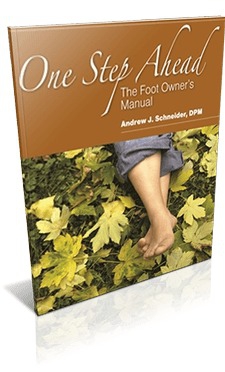Let me paint a picture for you. I’m standing on the playground, letting my kid play. Suddenly, out of the corner of my eye, I catch a woman and her husband struggling to put shoes on their one-year-old little boy, who isn’t yet walking. I watch in silence, which takes a lot of effort on my part. But soon, the mother glances up in my direction. And she knows me. So she immediately starts to explain her situation, knowing that I’m a podiatrist in Houston.
“He’s not walking yet,” she said. “But I left him with my mother last week. She bought him some shoes because she thought it would give him the push to start going.” I heard the apologetic tone in her voice, and I knew it's source right away. It was there because she’s known me long enough to know what I was thinking: that's a wrong choice! Allow me to explain further, for all of you readers out there who can't stop, won't stop grabbing those baby Jordans for your little ones.
Shoes are Meant for Walking ![baby trying on adult shoes]()
Shoes are designed to protect your feet when you walk. So babies who aren’t walking yet don’t need shoes. In fact, rather than encouraging walking, wearing shoes may actually make your baby walk a little bit later. How could that be?
It's pretty simple, actually. Babies’ feet gain the balance, strength and coordination necessary for walking by feeling the floor. It's a crucial part of their development. But shoes act as a barrier between your baby’s foot and the ground. And that can make it harder for them to sort out the walking process.
If going barefoot helps babies develop, why do we ever put shoes on them? Well, the only reason walking babies need to wear shoes once they have mastered mobility is to protect them from sharp objects, dirt and hot or rough surfaces. But when they’re home? I’d still recommend letting babies go shoeless, as long as there aren’t any obvious hazards in their way. Just keep in mind that this advice only applies to babies. If adults, especially people with diabetes, go barefoot too often, it can lead to foot pain and other big problems.
Babies in Shoes: The Problems are Worse Than Delayed Walking
For first time moms, late walking is a scary idea. Now, veteran moms may prefer to keep their kids crawling for a little longer. But we digress. Because, if you think shoes just delay walking, think again! In reality, there are lots of bad possibilities that can crop up when kids wear shoes too soon. Just read on to find out more!
What Happens When Babies Wear Shoes Too Soon
Want to know the age of the youngest patient I’ve ever seen in my podiatry practice?
2 months old!!!
This infant patient had problems most kiddos won't face for many years. Sadly, the baby had been suffering from painful, inflamed, and infected ingrown toenails. He'd had them almost since birth. This little guy's poor mom took him to many different doctors. And they all told her the same thing....to soak his foot in warm water. 
I told her something different. This poor baby was hurting! As I reached for his foot, he instinctively pulled it away. He had nasty ingrown toenails on both great toes. I felt his pain! And I knew that pain is never a part of the normal growing process. Or something kids should live with until they 'outgrow' the discomfort.
But here's something else I know, too. Infants' nails are different than adults. They are thinner and more pliable. It's easier to file them instead of trimming them, because of the tiny nail surface. Making things more complicated, they often grow in odd directions, including inward.
Still, this won't usually cause infants pain. Why? Because of the nail's flexibility, they don't usually develop infections. Yet this baby's nails were very infected. So I knew something external was causing problems. And I knew his treatment would require a different approach.
What do I mean by that? When I see an adult with an infected ingrown toenail, my process is pretty simple. In these cases, the best way to care for the nail is usually with a procedure to remove the ingrowing part of the nail from the skin. But with children this young, a procedure is not usually necessary. Some topical antibiotics, along with some other recommendations, is all it will take.
That was still true, but this baby kept having problems. So I needed to figure out why his issues were recurring. And can you guess the main culprit? It was the fact that he was wearing shoes on a regular basis! Infants and toddlers who are not yet walking do not belong in structured shoes, as I’ve already mentioned. Socks and soft booties are fine, but a regular shoe or sandal is not....even if it matches the outfit. Access to the feet is important in a baby's development and helps the child learn to walk on schedule.
So there you have it—to my friends, patients, and all the other parents reading this—your pre-walking baby doesn’t need shoes! And if you need me to give you reassurance, or if you have any other concerns about your baby or child’s developing foot, come see me at Tanglewood Foot Specialists, for the advanced care and gentle touch your little one deserves.




















